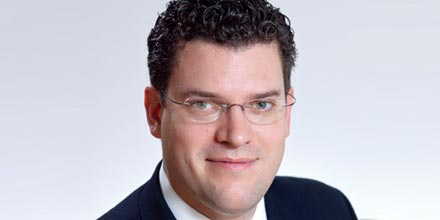… as Franklin Templeton shows ESG integration at macro level
ESG factors have started to become recognised in fixed income investing as value-adding indicators of economic performance. An increasing number of macro fund managers are beginning to incorporate some form of ESG into their decision-making process.
In the latest edition of ‘Global Macro Shifts’ a client report by Michael Hasenstab, the CIO of Templeton Global Macro, he says ESG factors should be integrated into macro portfolios – across asset classes – not just in equity stock selection as has traditionally been the case.
He explains in the report, ‘Environmental, Social and Governance Factors in Global Macro Investing’, how integration of ESG factors into a research process works, and how Franklin Templeton developed a proprietary ESG scoring system called the ‘Templeton Global Macro ESG Index (TGM-ESGI)’ to assess current and projected ESG conditions in various countries and to facilitate macroeconomic country comparisons around the world.
The report cites Argentina as a case study from where the manager believes the greatest ESG score improvement can come. In its TGM-ESGI country rankings, the manager says no country got a “perfect score” (if that is possible). Denmark and Switzerland were highest, with a score of 9.2, and Venezuela the lowest with 2.2. New Zealand ranked eighth with 8.85 and Australia ninth with 8.8. US was seventh with 8.9.
The report says: “Our results show, as expected, that developed countries have higher ESG scores; developed markets have an average grade of 8.2 compared to 4.9 amongst emerging markets. Similarly, we see that ESG corresponds strongly with gross domestic product (GDP) per capita. The relationship between these two indicators appears to be exponential; the payoff of stronger ESG performance on income rises as scores increase.
“We should note that, especially at higher per capita GDP levels, the relationship with ESG scores becomes mutually reinforcing rather than a simple one-way causal relationship. As we mentioned above, strong governance institutions, social cohesion and sustainable environmental policies support economic growth and higher income levels. At the same time, as countries become richer they can invest more in state-of-the-art infrastructure, assign greater priority to environmental sustainability, and develop a well-educated middle class that demands better social and political institutions…
“The ranks of the countries where we expect ESG factors to improve are dominated by emerging markets. Conversely, we expect a deterioration in the TGM-ESGI for several advanced economies, notably in Europe and Japan. Starting from lower average scores, emerging markets naturally have more room to improve; however, the fact that some advanced economies are expected to backtrack also speaks to the gradual convergence we have been seeing between advanced and emerging economies in terms of economic performance and weight in the global economy.”
Case study – Argentina
In its case study, the manager says Argentina stands out as the country where it expects the greatest ESG score improvement. Within the medium term the researchers project its ESG score to rise 0.8 points from 5.4 to 6.2.
“Argentina was one of the wealthiest countries in Latin America, with a young population, a highly educated labour force and a strong agricultural sector, as well as abundant oil and mineral deposits.
“But after an economic crisis in the early 2000s, Argentina began a path marked by isolation from trade, government-controlled prices and unsustainable fiscal policy. The result was a falling current account surplus and declining national savings combined with lower productivity. The government also began to manipulate data to mask the incredibly high inflation that resulted from the central bank printing money to fund ministry of finance spending. Argentina never recovered to pre-crisis levels in terms of regulatory quality and rule of law.”










